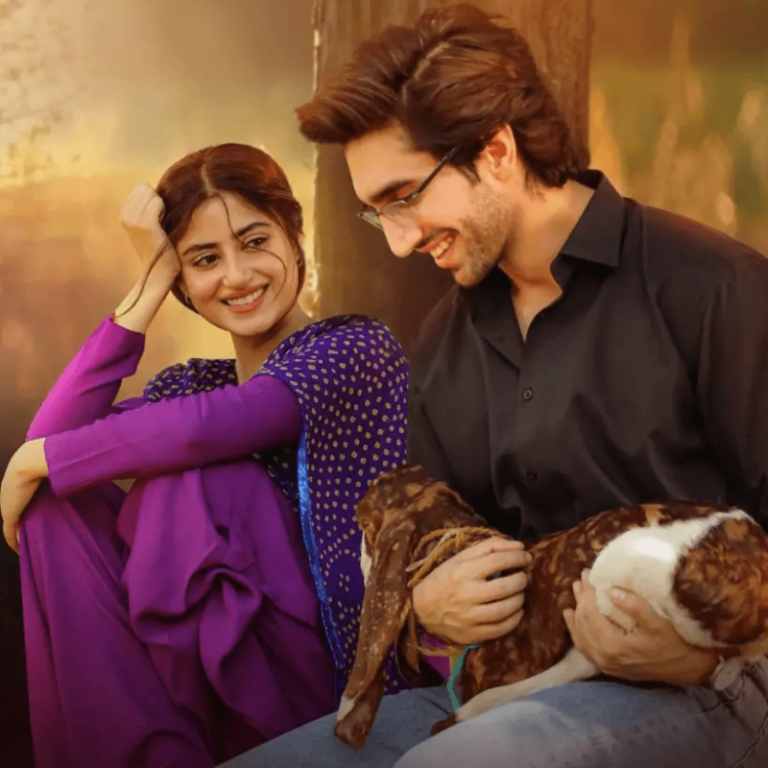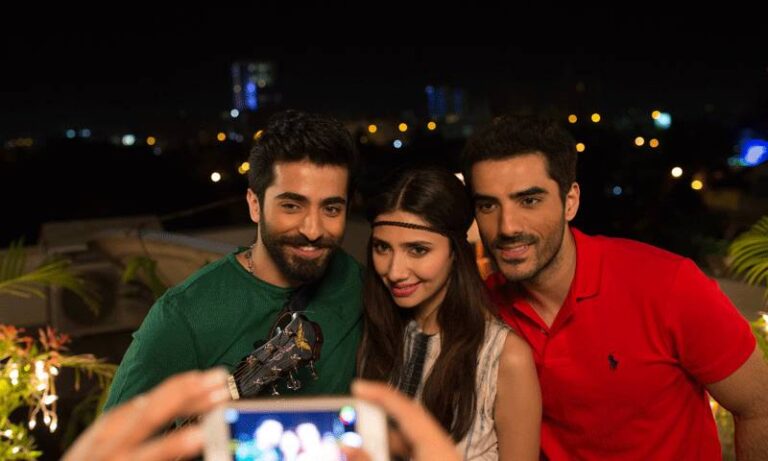It’s time for a nation to go into complete denial. Denial of the fact that we are a people with displaced priorities: literacy, progress, tolerance, humanity are just some of the lynchpins sacrificed to uphold an artificial façade of moral supremacy.
Shoaib Mansoor tackles all this and more in a film that hopes to push the Pakistani society at large into accepting that these issues prevail amongst us. One can only hope that this push will snowball into a movement against elements driving us towards self-destruction.
Bol is a riveting story, narrated in quintessential Shoaib Mansoor style, which means it is as close to real life as possible. This also makes it twice as disturbing. But it is the antithesis of mindless, meaningless Indian comedies that our cinemas are flooded with these days, which is refreshing.
Mansoor’s cinema style still borders on tele-film/docu-drama, which could be blamed on the cast originating from television as well as the director/writer’s experience being imbedded in the smaller screen.
The film is by no means flawless. Technical weaknesses in light and sound apart, even the storyline cracks when Atif Aslam’s Mustafa — an otherwise educated and aware young man — leaves the underage, effeminate and vulnerable Saifu (played brilliantly by young Amr Kashmiri) at the local truck adda to paint motifs on the inter-state vehicles driven by gruff-looking men. Saifu’s inevitable molestation is predictable to everyone except for Mustafa himself, and he fails to see through the lecherous smiles of the truck drivers.
Playing in cinemas for over a week now, Bol is blowing people both hot and cold. Most people are hailing it for being a bold mirror to Pakistan’s social problems — issue-based films are rapidly becoming the director’s genre as a film-maker — while others are condemning it for being an unnecessarily heavy dose of oppressive cinema.
One feels that while it is necessary to take off the rose-tinted shades of Pakistan’s La La Land known as Lollywood, it is equally important for a playwright like Shoaib Mansoor to script a film that is light-hearted and entertaining. Fifty Fifty and Ankahi bear witness to the fact that the playwright can work his comedies just as effectively as his tragedies. It would be a dream if he could make his films sooner instead of spacing them out so far, and if he could pick a lighter theme next time instead of the heavily-nuanced and serious cinema that he is becoming famous for. God knows that the people of this country need entertainment just as much as they need a reality check.
THE STORY
The story of the film, as many of you would already know by now, builds around the family of Hakeem Shafaatullah (Manzar Sehbai), an apothecary whose practice suffers greatly as hospitals replace dawakhanas and doctors replace hakeems. His desire for a male heir leads to an unsustainable family of daughters and finally a child Saifu (Amr Kashmiri) that can qualify as neither gender. His oldest daughter Zainab (Humaima Malik) rebels against Shafaatullah’s consistent oppression and constantly suffers her father’s wrath for having a “khabees” voice.
His other daughter, Ayesha (Mahira Khan), finds a more secretive route out and discovers a love interest in the neighborhood medical student Mustafa (Atif Aslam). They share a mutual passion for music.
Destitution and poverty hangs heavy over this family and as it falls into one problem after the other, Shafaatullah finds himself sinking deeper and deeper into troublesome quicksand. A man whose professional credibility is based on honesty and religious dependency gradually steers his family to devastation in order to uphold his image of self-righteousness. Finally, he self-destructs, taking every one else down with him.
CONVINCING CHARACTERISATIONS
SAAQA
As real in portrayal as any other character of the film, Saaqa (played to perfection by veteran actor Shafqat Cheema), is easily the most effective and entertaining characters in the film. He plays the father/pimp of the red light area’s most-coveted courtesan, Meena, and shamelessly indulges in everything a decent man would consider vulgar — from the absurdly unhealthy breakfast of oily paye (trotters) to wheeling an indecent deal for his ward. Even pimps have standards though, and when Shafaatullah comes to teach several neighborhood boys, Saaqa watches over them so that their impressionable young minds are not brainwashed into the mindset of another religious sect.
MEENA
Shoaib sticks with favourites in Bol and it couldn’t have found a role more suited to Iman Ali than that of the gorgeous Meena. Iman characterises Heera Mandi’s most-coveted courtesan who makes an entry while reciting the infamous “Aap kay paon bohat haseen hain…” lines from Pakeeza in honour of none other than Hakeem Shafaatullah. Fragile to unrealistic proportions, Meena is the only character that is more fantasy than reality but the one glimpse she offers of her true self (shifting from salees Urdu to crude Punjabi while communicating with a client’s driver) is enough to convince one of the act she is putting up.
MUSTAFA & AYESHA
Two characters that are more wooden than human, Mustafa and Ayesha played by Atif Aslam and Mahira Khan, bring relief that is essential to lighten up the film in order to make it palatable. They appear as a refreshing breeze or as Atif himself said in an interview, “a small smile” in the film. It would be impossible to introduce senseless comic relief or flashy item numbers to a film this serious and so Mustafa and Ayesha bring in the much-needed breathers in their own unique way. A bit of eye candy offered in seeing one of Pakistan’s biggest pop stars on the big screen is undoubtedly welcome. Mahira is extremely easy on the eyes too and Atif’s vocals teamed up with Hadiqa Kiani’s playback makes for some seriously good music. Hona Tha Pyar and Kaho filmed on Atif and Mahira are strongest on the soundtrack.
HAKEEM SHAFAATULLAH
It is a blessing in disguise that a role that could have been adapted by Naseeruddin Shah or Irrfan Khan landed in the hands of the less exposed (but by no means inexperienced) Manzar Sehbai. He does full justice to the character of Hakeem Shafaatullah, a religious man who cannot make ends meet for his family. When things take a turn for the ugly and he lands in hot water that only hard cash will cool, he finds himself traveling to the ‘untouchable’ Heera Mandi to teach children. But he considers this money so toxic that he spends a day washing and ironing the currency dry. An old fashion patriarch, Hakeem is a poster-child for hypocrisy and double sexist standards that target women but never men.
ZAINAB
As far as protagonists are concerned, this film belongs to Humaima Malik through and through. There is absolutely nothing that connects the bewildered, fiery and rebellious Zainab of Bol to the dolled up and glamorous model that graces fashion runways and billboards these days.
This versatility and the way she handles a complicated character proves her worth as an actor; she has no qualms in stripping the glamour to do justice to her role. Unfortunately, while cinema creates stars, there isn’t enough quality cinema in Pakistan to absorb this young and upcoming talent.
By Aamna Haider Isani | InpaperMagzine
Courtesy dawn news
http://www.dawn.com/2011/07/03/final-analysis-what-does-bol-have-to-say.html















